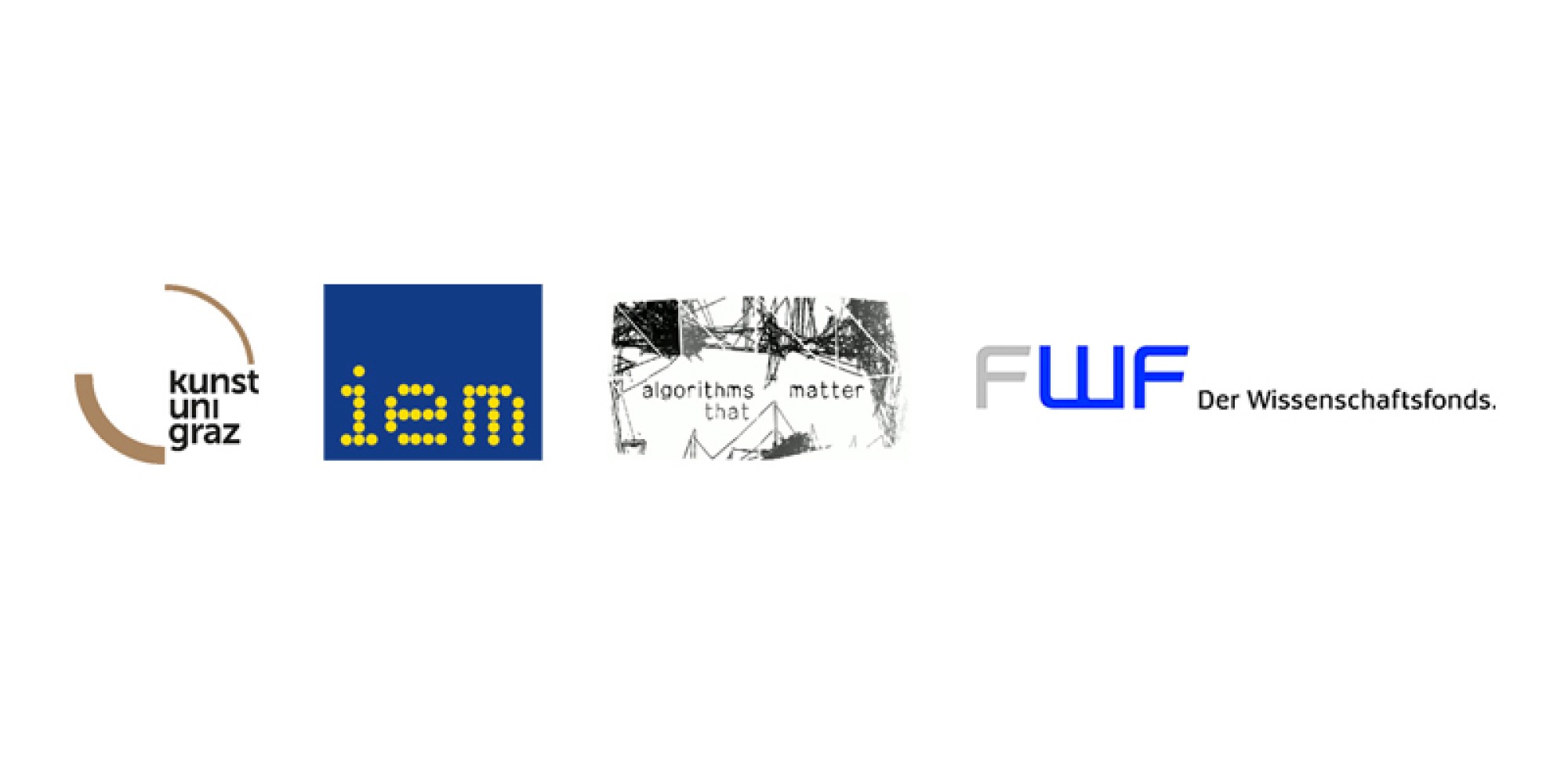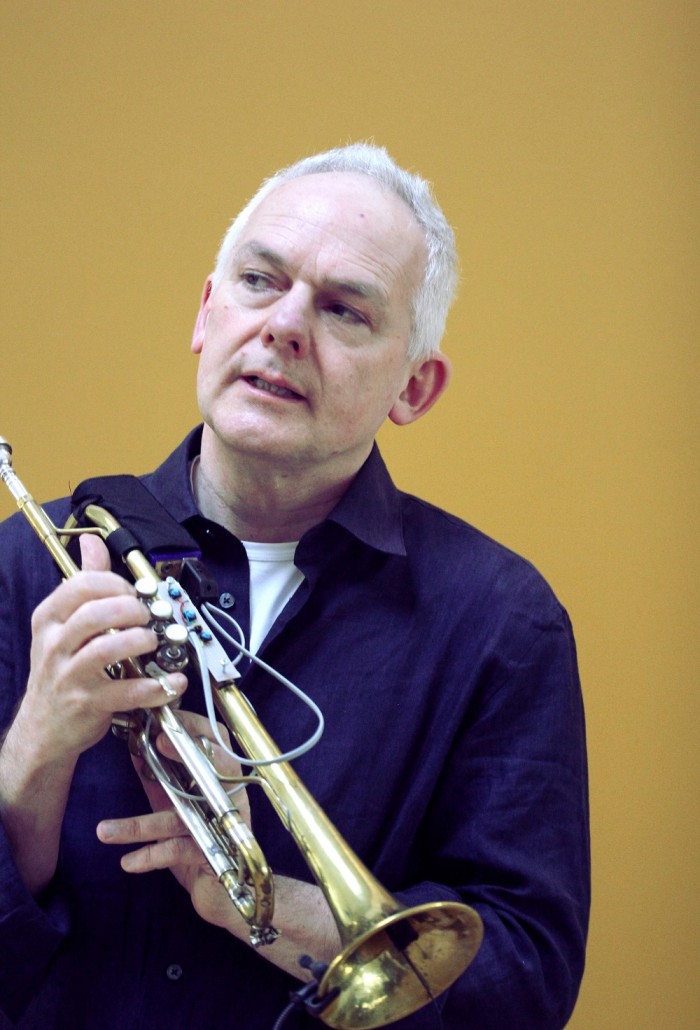
Date and location
from March 21, 2019 until March 22, 2019
Orpheus Institute (Ghent, Belgium)
Simulation and Computer Experimentation in Music and Sound Art
Eventfrom March 21, 2019 until March 22, 2019Orpheus Seminar
The seminar aims to bring together practitioners and scholars to discuss the wide-reaching implications of the ‘agential cut’ (Barad) or ‘ontic cut’ (Rheinberger) – the separation between operationalised model or abstract theory and perceived or experimentally verified ‘reality’, the fissure already indicated by Husserl and realised in experimental computational systems.
Register nowCo-organisers:
- ‘Music, Thought and Technology’ (Orpheus Institute, Ghent)
- ‘Algorithms that Matter’ (University of Music and Performing Arts Graz, FWF AR 403-GBL)

Computational methods have made their way into most of scientific and artistic fields; simulation has become a paradigmatic mode in contemporary practices. In science, in design, in medicine and in art, simulations of natural, human, technological or abstract systems (or techniques derived from simulation) are ubiquitous. The development of new methods of computation and simulation in the natural sciences initiated an ongoing discussion about the relationship of in silico experiments to empirical or theoretical modes of investigation.
The seminar aims to bring together practitioners and scholars to discuss the wide-reaching implications of the ‘agential cut’ (Barad) or ‘ontic cut’ (Rheinberger) – the separation between operationalised model or abstract theory and perceived or experimentally verified ‘reality’, the fissure already indicated by Husserl and realised in experimental computational systems. These introduce a new type of interface between the machinery and what is implemented, allowing for the ongoing production of new data and going beyond the traditional atemporal theoretical models; crucially, simulations also allow new and mobile perspectives onto the ‘object’ modelled by tracing contingent, situated, multiple paths through what DeLanda describes as ‘a space of possibilities’ – alternative realities within a space that displays stability or consistency at another level. In Rheinberger’s words ‘it becomes urgent to ask whether computer simulations represent a new category of epistemic object altogether.’
Computational models afford a way to test theoretical constructs or observe the consequences of non-physical or even imaginary hypotheses. One arrives at a critical conception of computation, situating it beyond the dualism of a deductive, representational approach and an inductive, empirical approach, acknowledging a speculative quality of algorithms that ‘are not simply the computational version of mathematical axioms, but are to be conceived as actualities, self-constituting composites of data’ and ‘equipped with their own procedure for prehending data.’ (Parisi) The very activity of experimentation and augmenting the language of artistic creation is exposed through the use of algorithms.
Keynote Speaker
- Geoff Cox - The Now of Computer Experimentation
Presenters
Paper presentations
- Bjarni Gunnarsson – Synthetic environments and compositional context
- Iain Emsley – Distant Sonification: Creating and transforming practice and meaning through algorithmic processes
- Dolores A. Steinman, Peter Coppin, David A. Steinman – Re-imagining Blood Flow at the Blurry Border between Simulation and Simulacrum
- Mark Pilkington – Current 9 – Graphical Notation in Music
- Eric Maestri – Simulation as intimate transformation of the existential experience
- Olaf Hochherz – # Hiller and Isaacson’s misleading representations of their experiments
- Tom Mudd – Algorithms playing Algorithms: coding music via the algorithmic creation of score and instrument files for the NESS physical models
- Michele Del Prete – The supplement of simulation. Klang, Ton, and the agency of sound algorithms
- Jari Rinne – Sound Art as Simulation
- Hanns Holger Rutz – Computing at Intrinsic Speed within a Culture of
Real-Time - David Pirrò, Luc Döbereiner – Contingency and Sychronisation
Performances
- Rebekah Wilson – Beyond Isomorphism: transformation of human/machine agency
- Juan Parra, Fernando Rosas – On Timbre Networks: Between Metaphor, Simulation, and Model (and Metaphor)
- Robert Lisek – Meta-learning in Music
- Magno Caliman – squareFuck
- Kiyoshi Furukawa, Haruyuki Fujii, Takayuki Hamano – The “ARCHITECTURE DREAMS MUSIC” Project
Schedule
21 March
13.00 - 20.00 Keynote, paper presentations and performances
20.00 Dinner
22 March
9.00 - 18.00 Paper presentations, keynote, lunch and performances
Convenors
- Jonathan Impett (Orpheus Institute)
- Hanns Holger Rutz (University of Music and Performing Arts Graz)
- David Pirrò (University of Music and Performing Arts Graz)
Registration
General fee: € 50 (+ € 3.62 administrative cost, dinner on Thursday and lunch on Friday incl.)
For docARTES students, Orpheus related researchers, teachers and students at Flemish conservatoires and all those who responded to the call for proposals, the general fee is waived.
Deadline: 18 March 2019
By registering for an event at the Orpheus Institute you agree to our terms and conditions.

